אנו משתמשים ב-Cookies כדי לשפר את החוויה שלך. כדי לקיים ההנחיה החדשה של e-Privacy, עלינו לבקש את הסכמתך להגדיר את ה-Cookies. קבלת מידע נוסף.
IE Harrison's Principles of Internal Medicine, Twenty-First Edition Vol 1 & 2 (SET)
מהדורה חדשה צפויה לצאת בספטמבר
The Voice of Clinical Reason
Harrison’s Principles of Internal Medicine is the world's most trusted clinical medicine text―and a superb resource for learning the art and science of clinical reasoning. Recognized by healthcare professionals worldwide as the leading authority on applied pathophysiology and clinical medicine, Harrison’s Principles of Internal Medicine provides the informational foundation you need for the best patient care possible. This new edition is fully updated with timely new chapters and essential updates across the spectrum of internal medicine.
Harrison's Principles of Internal Medicine stands as the benchmark for authoritative, practical information on patient care and the pathogenesis and clinical management of symptoms and signs and specific diseases. Written and edited by the world’s top experts in their respective fields, this landmark guide provides the comprehensive, accurate, and essential coverage of the pathogenesis, diagnosis, and treatment of disease.
Harrison’s is world-renowned as the most authoritative source for:
• Descriptions of disease mechanisms and how the clinician can apply that knowledge for the best patient care and optimal diagnosis and treatment of specific diseases
• Clear, concise schemas that facilitate the generation of differential diagnoses to reason efficiently through complex real world clinical cases
• The physiologic and epidemiologic basis of signs and symptoms, which are covered through a wealth of unsurpassed expert guidance and linked to the disease-specific chapters that follow
• Updated clinical trial results and recommended guidelines
• Excellent and extensive visual support, including radiographs, clinical photos, schematics, and high-quality drawings
• Coverage of both therapeutic approaches and specific treatment regimens
• Practical clinical decision trees and algorithms
• Organ-specific sections, with clinically relevant pathophysiology and practical clinical advice on the approach to the patient, strategies towards building a differential diagnosis, outstanding clinical algorithms and diagnostic schema, a wealth of clinical images and diagrams, current clinical guidelines, general and specific approaches to therapy
Harrison’s remains the most trusted resource in a world influenced by endless sources of medical information. The most timely and comprehensive updates from the world’s top experts are featured in the 21st edition:
• Current coverage of the diagnosis and treatment of diseases, from COVID to dementia to sepsis to multiple sclerosis to lung cancer
• Updated content that reflects new approved therapeutics and new practice-changing guidelines and evidence summaries
• More than 1000 clinical, pathological, and radiographic photographs, diagnostic and therapeutic decision trees, and clear schematics and diagrams describing pathophysiologic processes
• More than a dozen atlases featuring curated collections of visual aspects of diagnosis and management
• Complete, updated curation and synthesis of primary medical literature which incorporates current data from major studies and clinical trials
• Clinical reasoning resources and helpful disease/presentation schemas
• Clinically relevant coverage of disease mechanics and pathophysiology, and related therapeutic mechanisms
| מהדורה | 21ED |
|---|---|
| עמודים / Pages | 4384 |
| פורמט | 2 Vol Set |
| הוצאה לאור | McGraw-Hill |
| תאריך יציאה לאור | 2 במאי 2022 |
| תוכן עניינים | Cover Title Page Copyright Page Contents Contributors Preface Harrison’s Related Resources PART 1 The Profession of Medicine 1 The Practice of Medicine 2 Promoting Good Health 3 Vaccine Opposition and Hesitancy 4 Decision-Making in Clinical Medicine 5 Precision Medicine and Clinical Care 6 Screening and Prevention of Disease 7 Global Diversity of Health System Financing and Delivery 8 The Safety and Quality of Health Care 9 Diagnosis: Reducing Errors and Improving Quality 10 Racial and Ethnic Disparities in Health Care 11 Ethical Issues in Clinical Medicine 12 Palliative and End-of-Life Care PART 2 Cardinal Manifestations and Presentation of Diseases SECTION 1 Pain 13 Pain: Pathophysiology and Management 14 Chest Discomfort 15 Abdominal Pain 16 Headache 17 Back and Neck Pain SECTION 2 Alterations in Body Temperature 18 Fever 19 Fever and Rash 20 Fever of Unknown Origin SECTION 3 Nervous System Dysfunction 21 Syncope 22 Dizziness and Vertigo 23 Fatigue 24 Neurologic Causes of Weakness and Paralysis 25 Numbness, Tingling, and Sensory Loss 26 Gait Disorders, Imbalance, and Falls 27 Confusion and Delirium 28 Coma 29 Dementia 30 Aphasia, Memory Loss, and Other Cognitive Disorders 31 Sleep Disorders SECTION 4 Disorders of Eyes, Ears, Nose, and Throat 32 Disorders of the Eye 33 Disorders of Smell and Taste 34 Disorders of Hearing 35 Upper Respiratory Symptoms, Including Earache, Sinus Symptoms, and Sore Throat 36 Oral Manifestations of Disease SECTION 5 Alterations in Circulatory and Respiratory Functions 37 Dyspnea 38 Cough 39 Hemoptysis 40 Hypoxia and Cyanosis 41 Edema 42 Approach to the Patient with a Heart Murmur 43 Palpitations SECTION 6 Alterations in Gastrointestinal Function 44 Dysphagia 45 Nausea, Vomiting, and Indigestion 46 Diarrhea and Constipation 47 Unintentional Weight Loss 48 Gastrointestinal Bleeding 49 Jaundice 50 Abdominal Swelling and Ascites SECTION 7 Alterations in Renal and Urinary Tract Function 51 Interstitial Cystitis/Bladder Pain Syndrome 52 Azotemia and Urinary Abnormalities 53 Fluid and Electrolyte Disturbances 54 Hypercalcemia and Hypocalcemia 55 Acidosis and Alkalosis SECTION 8 Alterations in the Skin 56 Approach to the Patient with a Skin Disorder 57 Eczema, Psoriasis, Cutaneous Infections, Acne, and Other Common Skin Disorders 58 Skin Manifestations of Internal Disease 59 Immunologically Mediated Skin Diseases 60 Cutaneous Drug Reactions 61 Photosensitivity and Other Reactions to Sunlight SECTION 9 Hematologic Alterations 62 Interpreting Peripheral Blood Smears 63 Anemia and Polycythemia 64 Disorders of Granulocytes and Monocytes 65 Bleeding and Thrombosis 66 Enlargement of Lymph Nodes and Spleen PART 3 Pharmacology 67 Principles of Clinical Pharmacology 68 Pharmacogenomics PART 4 Oncology and Hematology SECTION 1 Neoplastic Disorders 69 Approach to the Patient with Cancer 70 Prevention and Early Detection of Cancer 71 Cancer Genetics 72 Cancer Cell Biology 73 Principles of Cancer Treatment 74 Infections in Patients with Cancer 75 Oncologic Emergencies 76 Cancer of the Skin 77 Head and Neck Cancer 78 Neoplasms of the Lung 79 Breast Cancer 80 Upper Gastrointestinal Tract Cancers 81 Lower Gastrointestinal Cancers 82 Tumors of the Liver and Biliary Tree 83 Pancreatic Cancer 84 Gastrointestinal Neuroendocrine Tumors 85 Renal Cell Carcinoma 86 Cancer of the Bladder and Urinary Tract 87 Benign and Malignant Diseases of the Prostate 88 Testicular Cancer 89 Gynecologic Malignancies 90 Primary and Metastatic Tumors of the Nervous System 91 Soft Tissue and Bone Sarcomas and Bone Metastases 92 Carcinoma of Unknown Primary 93 Paraneoplastic Syndromes: Endocrinologic/Hematologic 94 Paraneoplastic Neurologic Syndromes and Autoimmune Encephalitis 95 Cancer Survivorship and the Long-Term Impact of Cancer and Its Treatment SECTION 2 Hematopoietic Disorders 96 Hematopoietic Stem Cells 97 Iron Deficiency and Other Hypoproliferative Anemias 98 Disorders of Hemoglobin 99 Megaloblastic Anemias 100 Hemolytic Anemias 101 Anemia Due to Acute Blood Loss 102 Bone Marrow Failure Syndromes Including Aplastic Anemia and Myelodysplasia 103 Polycythemia Vera and Other Myeloproliferative Neoplasms 104 Acute Myeloid Leukemia 105 Chronic Myeloid Leukemia 106 Acute Lymphoid Leukemia 107 Chronic Lymphocytic Leukemia 108 Non-Hodgkin’s Lymphoma 109 Hodgkin’s Lymphoma 110 Less Common Lymphoid and Myeloid Malignancies 111 Plasma Cell Disorders 112 Amyloidosis 113 Transfusion Therapy and Biology 114 Hematopoietic Cell Transplantation SECTION 3 Disorders of Hemostasis 115 Disorders of Platelets and Vessel Wall 116 Coagulation Disorders 117 Arterial and Venous Thrombosis 118 Antiplatelet, Anticoagulant, and Fibrinolytic Drugs PART 5 Infectious Diseases SECTION 1 Basic Considerations in Infectious Diseases 119 Approach to the Patient with an Infectious Disease 120 Molecular Mechanisms of Microbial Pathogenesis 121 Microbial Genomics and Infectious Disease 122 Approach to the Acutely Ill Infected Febrile Patient 123 Immunization Principles and Vaccine Use 124 Health Recommendations for International Travel 125 Climate Change and Infectious Disease SECTION 2 Clinical Syndromes: Community-Acquired Infections 126 Pneumonia 127 Lung Abscess 128 Infective Endocarditis 129 Infections of the Skin, Muscles, and Soft Tissues 130 Infectious Arthritis 131 Osteomyelitis 132 Intraabdominal Infections and Abscesses 133 Acute Infectious Diarrheal Diseases and Bacterial Food Poisoning 134 Clostridioides difficile Infection, Including Pseudomembranous Colitis 135 Urinary Tract Infections, Pyelonephritis, and Prostatitis 136 Sexually Transmitted Infections: Overview and Clinical Approach 137 Encephalitis 138 Acute Meningitis 139 Chronic and Recurrent Meningitis 140 Brain Abscess and Empyema 141 Infectious Complications of Bites SECTION 3 Clinical Syndromes: Health Care–Associated Infections 142 Infections Acquired in Health Care Facilities 143 Infections in Transplant Recipients SECTION 4 Therapy for Bacterial Diseases 144 Treatment and Prophylaxis of Bacterial Infections 145 Bacterial Resistance to Antimicrobial Agents SECTION 5 Diseases Caused by Gram-Positive Bacteria 146 Pneumococcal Infections 147 Staphylococcal Infections 148 Streptococcal Infections 149 Enterococcal Infections 150 Diphtheria and Other Corynebacterial Infections 151 Listeria monocytogenes Infections 152 Tetanus 153 Botulism 154 Gas Gangrene and Other Clostridial Infections SECTION 6 Diseases Caused by Gram-Negative Bacteria 155 Meningococcal Infections 156 Gonococcal Infections 157 Haemophilus and Moraxella Infections 158 Infections Due to the HACEK Group and Miscellaneous Gram-Negative Bacteria 159 Legionella Infections 160 Pertussis and Other Bordetella Infections 161 Diseases Caused by Gram-Negative Enteric Bacilli 162 Acinetobacter Infections 163 Helicobacter pylori Infections 164 Infections Due to Pseudomonas, Burkholderia, and Stenotrophomonas Species 165 Salmonellosis 166 Shigellosis 167 Infections Due to Campylobacter and Related Organisms 168 Cholera and Other Vibrioses 169 Brucellosis 170 Tularemia 171 Plague and Other Yersinia Infections 172 Bartonella Infections, Including Cat-Scratch Disease 173 Donovanosis SECTION 7 Miscellaneous Bacterial Infections 174 Nocardiosis 175 Actinomycosis 176 Whipple’s Disease 177 Infections Due to Mixed Anaerobic Organisms SECTION 8 Mycobacterial Diseases 178 Tuberculosis 179 Leprosy 180 Nontuberculous Mycobacterial Infections 181 Antimycobacterial Agents SECTION 9 Spirochetal Diseases 182 Syphilis 183 Endemic Treponematoses 184 Leptospirosis 185 Relapsing Fever and Borrelia miyamotoi Disease 186 Lyme Borreliosis SECTION 10 Diseases Caused by Rickettsiae, Mycoplasmas, and Chlamydiae 187 Rickettsial Diseases 188 Infections Due to Mycoplasmas 189 Chlamydial Infections SECTION 11 Viral Diseases: General Considerations 190 Principles of Medical Virology 191 Antiviral Chemotherapy, Excluding Antiretroviral Drugs SECTION 12 Infections Due to DNA Viruses 192 Herpes Simplex Virus Infections 193 Varicella-Zoster Virus Infections 194 Epstein-Barr Virus Infections, Including Infectious Mononucleosis 195 Cytomegalovirus and Human Herpesvirus Types 6, 7, and 8 196 Molluscum Contagiosum, Monkeypox, and Other Poxvirus Infections 197 Parvovirus Infections 198 Human Papillomavirus Infections SECTION 13 Infections Due to DNA and RNA Respiratory Viruses 199 Common Viral Respiratory Infections, Including COVID-19 200 Influenza SECTION 14 Infections Due to Human Immunodeficiency Virus and Other Human Retroviruses 201 The Human Retroviruses 202 Human Immunodeficiency Virus Disease: AIDS and Related Disorders SECTION 15 Infections Due to RNA Viruses 203 Viral Gastroenteritis 204 Enterovirus, Parechovirus, and Reovirus Infections 205 Measles (Rubeola) 206 Rubella (German Measles) 207 Mumps 208 Rabies and Other Rhabdovirus Infections 209 Arthropod-Borne and Rodent-Borne Virus Infections 210 Ebolavirus and Marburgvirus Infections SECTION 16 Fungal Infections 211 Pathogenesis, Diagnosis, and Treatment of Fungal Infections 212 Histoplasmosis 213 Coccidioidomycosis 214 Blastomycosis 215 Cryptococcosis 216 Candidiasis 217 Aspergillosis 218 Mucormycosis 219 Less Common Systemic Mycoses and Superficial Mycoses 220 Pneumocystis Infections SECTION 17 Protozoal and Helminthic Infections: General Considerations 221 Introduction to Parasitic Infections 222 Agents Used to Treat Parasitic Infections SECTION 18 Protozoal Infections 223 Amebiasis and Infection with Free-Living Amebae 224 Malaria 225 Babesiosis 226 Leishmaniasis 227 Chagas Disease and African Trypanosomiasis 228 Toxoplasma Infections 229 Protozoal Intestinal Infections and Trichomoniasis SECTION 19 Helminthic Infections 230 Introduction to Helminthic Infections 231 Trichinellosis and Other Tissue Nematode Infections 232 Intestinal Nematode Infections 233 Filarial and Related Infections 234 Schistosomiasis and Other Trematode Infections 235 Cestode Infections PART 6 Disorders of the Cardiovascular System SECTION 1 Introduction to Cardiovascular Disorders 236 Approach to the Patient with Possible Cardiovascular Disease 237 Basic Biology of the Cardiovascular System 238 Epidemiology of Cardiovascular Disease SECTION 2 Diagnosis of Cardiovascular Disorders 239 Physical Examination of the Cardiovascular System 240 Electrocardiography 241 Noninvasive Cardiac Imaging: Echocardiography, Nuclear Cardiology, and Magnetic Resonance/Computed Tomography Imaging 242 Diagnostic Cardiac Catheterization and Coronary Angiography SECTION 3 Disorders of Rhythm 243 Principles of Clinical Cardiac Electrophysiology 244 The Bradyarrhythmias: Disorders of the Sinoatrial Node 245 The Bradyarrhythmias: Disorders of the Atrioventricular Node 246 Approach to Supraventricular Tachyarrhythmias 247 Physiologic and Nonphysiologic Sinus Tachycardia 248 Focal Atrial Tachycardia 249 Paroxysmal Supraventricular Tachycardias 250 Common Atrial Flutter and Macroreentrant and Multifocal Atrial Tachycardias 251 Atrial Fibrillation 252 Approach to Ventricular Arrhythmias 253 Premature Ventricular Contractions, Nonsustained Ventricular Tachycardia, and Accelerated Idioventricular Rhythm 254 Sustained Ventricular Tachycardia 255 Polymorphic Ventricular Tachycardia and Ventricular Fibrillation 256 Electrical Storm and Incessant Ventricular Tachycardia SECTION 4 Disorders of the Heart, Muscles, Valves, and Pericardium 257 Heart Failure: Pathophysiology and Diagnosis 258 Heart Failure: Management 259 Cardiomyopathy and Myocarditis 260 Cardiac Transplantation and Prolonged Assisted Circulation 261 Aortic Stenosis 262 Aortic Regurgitation 263 Mitral Stenosis 264 Mitral Regurgitation 265 Mitral Valve Prolapse 266 Tricuspid Valve Disease 267 Pulmonic Valve Disease 268 Multiple and Mixed Valvular Heart Disease 269 Congenital Heart Disease in the Adult 270 Pericardial Disease 271 Atrial Myxoma and Other Cardiac Tumors 272 Cardiac Trauma SECTION 5 Coronary and Peripheral Vascular Disease 273 Ischemic Heart Disease 274 Non-ST-Segment Elevation Acute Coronary Syndrome (Non-ST-Segment Elevation Myocardial Infarction and Unstable Angina) 275 ST-Segment Elevation Myocardial Infarction 276 Percutaneous Coronary Interventions and Other Interventional Procedures 277 Hypertension 278 Renovascular Disease 279 Deep-Venous Thrombosis and Pulmonary Thromboembolism 280 Diseases of the Aorta 281 Arterial Diseases of the Extremities 282 Chronic Venous Disease and Lymphedema 283 Pulmonary Hypertension PART 7 Disorders of the Respiratory System SECTION 1 Diagnosis of Respiratory Disorders 284 Approach to the Patient with Disease of the Respiratory System 285 Disturbances of Respiratory Function 286 Diagnostic Procedures in Respiratory Disease SECTION 2 Diseases of the Respiratory System 287 Asthma 288 Hypersensitivity Pneumonitis and Pulmonary Infiltrates with Eosinophilia 289 Occupational and Environmental Lung Disease 290 Bronchiectasis 291 Cystic Fibrosis 292 Chronic Obstructive Pulmonary Disease 293 Interstitial Lung Disease 294 Disorders of the Pleura 295 Disorders of the Mediastinum 296 Disorders of Ventilation 297 Sleep Apnea 298 Lung Transplantation 299 Interventional Pulmonary Medicine PART 8 Critical Care Medicine SECTION 1 Respiratory Critical Care 300 Approach to the Patient with Critical Illness 301 Acute Respiratory Distress Syndrome 302 Mechanical Ventilatory Support SECTION 2 Shock and Cardiac Arrest 303 Approach to the Patient with Shock 304 Sepsis and Septic Shock 305 Cardiogenic Shock and Pulmonary Edema 306 Cardiovascular Collapse, Cardiac Arrest, and Sudden Cardiac Death SECTION 3 Neurologic Critical Care 307 Nervous System Disorders in Critical Care Part 9 Disorders of the Kidney and Urinary Tract 308 Approach to the Patient with Renal Disease or Urinary Tract Disease 309 Cell Biology and Physiology of the Kidney 310 Acute Kidney Injury 311 Chronic Kidney Disease 312 Dialysis in the Treatment of Kidney Failure 313 Transplantation in the Treatment of Renal Failure 314 Glomerular Diseases 315 Polycystic Kidney Disease and Other Inherited Disorders of Tubule Growth and Development 316 Tubulointerstitial Diseases of the Kidney 317 Vascular Injury to the Kidney 318 Nephrolithiasis 319 Urinary Tract Obstruction 320 Interventional Nephrology PART 10 Disorders of the Gastrointestinal System SECTION 1 Disorders of the Alimentary Tract 321 Approach to the Patient with Gastrointestinal Disease 322 Gastrointestinal Endoscopy 323 Diseases of the Esophagus 324 Peptic Ulcer Disease and Related Disorders 325 Disorders of Absorption 326 Inflammatory Bowel Disease 327 Irritable Bowel Syndrome 328 Diverticular Disease and Common Anorectal Disorders 329 Mesenteric Vascular Insufficiency 330 Acute Intestinal Obstruction 331 Acute Appendicitis and Peritonitis SECTION 2 Nutrition 332 Nutrient Requirements and Dietary Assessment 333 Vitamin and Trace Mineral Deficiency and Excess 334 Malnutrition and Nutritional Assessment 335 Enteral and Parenteral Nutrition SECTION 3 Liver and Biliary Tract Disease 336 Approach to the Patient with Liver Disease 337 Evaluation of Liver Function 338 The Hyperbilirubinemias 339 Acute Viral Hepatitis 340 Toxic and Drug-Induced Hepatitis 341 Chronic Hepatitis 342 Alcohol-Associated Liver Disease 343 Nonalcoholic Fatty Liver Diseases and Nonalcoholic Steatohepatitis 344 Cirrhosis and Its Complications 345 Liver Transplantation 346 Diseases of the Gallbladder and Bile Ducts SECTION 4 Disorders of the Pancreas 347 Approach to the Patient with Pancreatic Disease 348 Acute and Chronic Pancreatitis PART 11 Immune-Mediated, Inflammatory, and Rheumatologic Disorders SECTION 1 The Immune System in Health and Disease 349 Introduction to the Immune System 350 Mechanisms of Regulation and Dysregulation of the Immune System 351 Primary Immune Deficiency Diseases SECTION 2 Disorders of Immune-Mediated Injury 352 Urticaria, Angioedema, and Allergic Rhinitis 353 Anaphylaxis 354 Mastocytosis 355 Autoimmunity and Autoimmune Diseases 356 Systemic Lupus Erythematosus 357 Antiphospholipid Syndrome 358 Rheumatoid Arthritis 359 Acute Rheumatic Fever 360 Systemic Sclerosis (Scleroderma) and Related Disorders 361 Sjögren’s Syndrome 362 Spondyloarthritis 363 The Vasculitis Syndromes 364 Behçet Syndrome 365 Inflammatory Myopathies 366 Relapsing Polychondritis 367 Sarcoidosis 368 IgG4-Related Disease 369 Familial Mediterranean Fever and Other Hereditary Autoinflammatory Diseases SECTION 3 Disorders of the Joints and Adjacent Tissues 370 Approach to Articular and Musculoskeletal Disorders 371 Osteoarthritis 372 Gout and Other Crystal-Associated Arthropathies 373 Fibromyalgia 374 Arthritis Associated with Systemic Disease, and Other Arthritides 375 Periarticular Disorders of the Extremities PART 12 Endocrinology and Metabolism SECTION 1 Endocrinology 376 Approach to the Patient with Endocrine Disorders 377 Mechanisms of Hormone Action 378 Physiology of Anterior Pituitary Hormones 379 Hypopituitarism 380 Pituitary Tumor Syndromes 381 Disorders of the Neurohypophysis 382 Thyroid Gland Physiology and Testing 383 Hypothyroidism 384 Hyperthyroidism and Other Causes of Thyrotoxicosis 385 Thyroid Nodular Disease and Thyroid Cancer 386 Disorders of the Adrenal Cortex 387 Pheochromocytoma 388 Multiple Endocrine Neoplasia Syndromes 389 Autoimmune Polyendocrine Syndromes SECTION 2 Sex- and Gender-Based Medicine 390 Sex Development 391 Disorders of the Testes and Male Reproductive System 392 Disorders of the Female Reproductive System 393 Menstrual Disorders and Pelvic Pain 394 Hirsutism 395 Menopause and Postmenopausal Hormone Therapy 396 Infertility and Contraception 397 Sexual Dysfunction 398 Women’s Health 399 Men’s Health 400 Lesbian, Gay, Bisexual, and Transgender (LGBT) Health SECTION 3 Obesity, Diabetes Mellitus, and Metabolic Syndrome 401 Pathobiology of Obesity 402 Evaluation and Management of Obesity 403 Diabetes Mellitus: Diagnosis, Classification, and Pathophysiology 404 Diabetes Mellitus: Management and Therapies 405 Diabetes Mellitus: Complications 406 Hypoglycemia 407 Disorders of Lipoprotein Metabolism 408 The Metabolic Syndrome SECTION 4 Disorders of Bone and Mineral Metabolism 409 Bone and Mineral Metabolism in Health and Disease 410 Disorders of the Parathyroid Gland and Calcium Homeostasis 411 Osteoporosis 412 Paget’s Disease and Other Dysplasias of Bone SECTION 5 Disorders of Intermediary Metabolism 413 Heritable Disorders of Connective Tissue 414 Hemochromatosis 415 Wilson’s Disease 416 The Porphyrias 417 Disorders of Purine and Pyrimidine Metabolism 418 Lysosomal Storage Diseases 419 Glycogen Storage Diseases and Other Inherited Disorders of Carbohydrate Metabolism 420 Inherited Disorders of Amino Acid Metabolism in Adults 421 Inherited Defects of Membrane Transport PART 13 Neurologic Disorders SECTION 1 Diagnosis of Neurologic Disorders 422 Approach to the Patient with Neurologic Disease 423 Neuroimaging in Neurologic Disorders 424 Pathobiology of Neurologic Diseases SECTION 2 Diseases of the Central Nervous System 425 Seizures and Epilepsy 426 Introduction to Cerebrovascular Diseases 427 Ischemic Stroke 428 Intracranial Hemorrhage 429 Subarachnoid Hemorrhage 430 Migraine and Other Primary Headache Disorders 431 Alzheimer’s Disease 432 Frontotemporal Dementia 433 Vascular Dementia 434 Dementia with Lewy Bodies 435 Parkinson’s Disease 436 Tremor, Chorea, and Other Movement Disorders 437 Amyotrophic Lateral Sclerosis and Other Motor Neuron Diseases 438 Prion Diseases 439 Ataxic Disorders 440 Disorders of the Autonomic Nervous System 441 Trigeminal Neuralgia, Bell’s Palsy, and Other Cranial Nerve Disorders 442 Diseases of the Spinal Cord 443 Concussion and Other Traumatic Brain Injuries 444 Multiple Sclerosis 445 Neuromyelitis Optica SECTION 3 Nerve and Muscle Disorders 446 Peripheral Neuropathy 447 Guillain-Barré Syndrome and Other Immune-Mediated Neuropathies 448 Myasthenia Gravis and Other Diseases of the Neuromuscular Junction 449 Muscular Dystrophies and Other Muscle Diseases SECTION 4 Myalgic Encephalomyelitis/Chronic Fatigue Syndrome 450 Myalgic Encephalomyelitis/Chronic Fatigue Syndrome SECTION 5 Psychiatric and Addiction Disorders 451 Biology of Psychiatric Disorders 452 Psychiatric Disorders 453 Alcohol and Alcohol Use Disorders 454 Nicotine Addiction 455 Marijuana and Marijuana Use Disorders 456 Opioid-Related Disorders 457 Cocaine, Other Psychostimulants, and Hallucinogens PART 14 Poisoning, Drug Overdose, and Envenomation 458 Heavy Metal Poisoning 459 Poisoning and Drug Overdose 460 Disorders Caused by Venomous Snakebites and Marine Animal Exposures 461 Ectoparasite Infestations and Arthropod Injuries PART 15 Disorders Associated with Environmental Exposures 462 Altitude Illness 463 Hyperbaric and Diving Medicine 464 Hypothermia and Peripheral Cold Injuries 465 Heat-Related Illnesses PART 16 Genes, the Environment, and Disease 466 Principles of Human Genetics 467 The Practice of Genetics in Clinical Medicine 468 Mitochondrial DNA and Heritable Traits and Diseases 469 Telomere Disease 470 Gene- and Cell-Based Therapy in Clinical Medicine 471 The Human Microbiome PART 17 Global Medicine 472 Global Issues in Medicine 473 Emerging and Reemerging Infectious Diseases 474 Primary Care and Global Health 475 Health Effects of Climate Change PART 18 Aging 476 Biology of Aging 477 Caring for the Geriatric Patient PART 19 Consultative Medicine 478 Approach to Medical Consultation 479 Medical Disorders During Pregnancy 480 Medical Evaluation of the Surgical Patient PART 20 Frontiers 481 Behavioral Economics and Health 482 Complementary and Integrative Therapies and Practices 483 The Role of Epigenetics in Disease and Treatment 484 Applications of Stem Cell Biology in Clinical Medicine 485 The Role of Circadian Biology in Health and Disease 486 Network Medicine: Systems Biology in Health and Disease 487 Emerging Neurotherapeutic Technologies 488 Machine Learning and Augmented Intelligence in Clinical Medicine 489 Metabolomics 490 Circulating Nucleic Acids as Liquid Biopsies and Noninvasive Disease Biomarkers 491 Protein Folding Disorders 492 Novel Approaches to Diseases of Unknown Etiology Index
|
| Author | J. Larry Jameson (Author), Anthony Fauci (Author), Dennis Kasper (Author), Stephen Hauser (Author), Dan Longo (Author), Joseph Loscalzo (Author) |


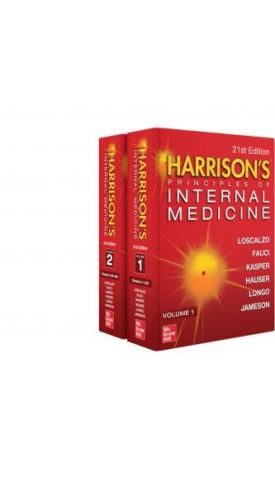






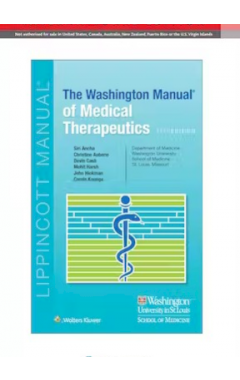
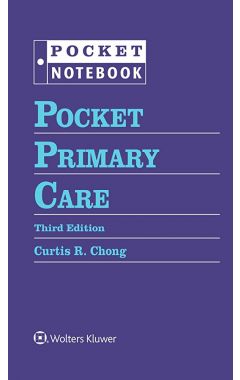

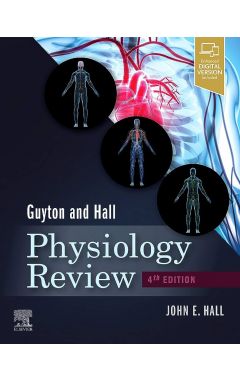

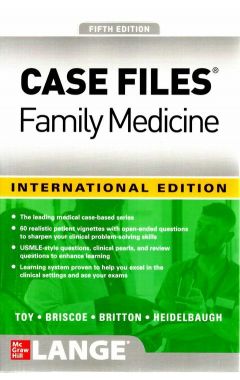

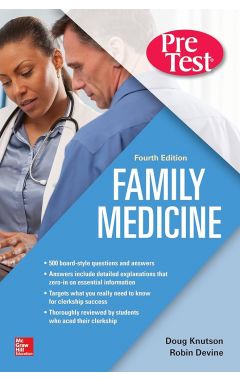
Login and Registration Form